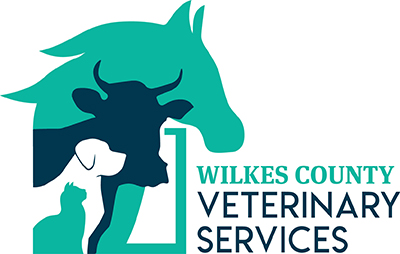Veterinary Care for Cattle - Bovine Medicine
The veterinarians at Wilkes County Veterinary Services possess vast experience diagnosing and treating bovine illnesses and injuries.
We understand that it is not always possible to bring your animal to a clinic. That is why we are proud to be a mobile veterinarian and offer house calls to see animals in your own home.
Seeing animals in their home allows us to treat the animals in a comfortable environment. Please let us know of any specific requests or conditions that will require special attention. We promise to communicate with you throughout the process to make sure it goes smoothly for you and your animal.
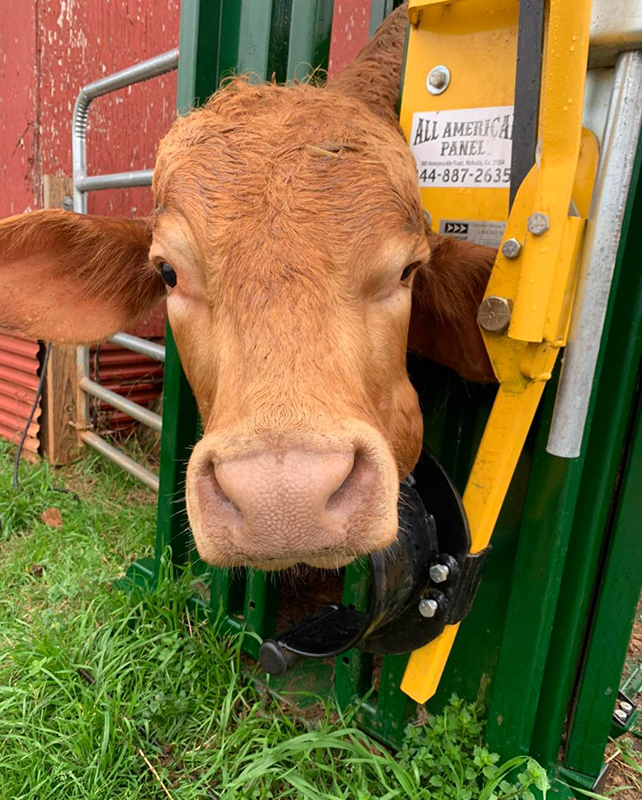
As part of our effort to help you keep your cattle healthy, we offer the following routine preventive care for cattle:
Routine preventive care
- Vaccinations protect cattle from various diseases. Vaccines stimulate the animal's immune system to produce antibodies against specific pathogens, reducing the risk of infection and disease.
- Deworming involves anthelmintic drugs to eliminate internal parasites such as worms. Regular deworming helps prevent parasitic infestations, which can cause weight loss, decreased productivity, and other health issues in cattle.
- Routine Hoof care and trimming / inspection maintains the health of cattle's feet. This helps prevent conditions such as foot rot and hoof abscesses, which can cause lameness and discomfort.
- Nutritional supplementation provides additional nutrients, such as vitamins and minerals, to cattle to ensure they receive a balanced diet. This is particularly important in areas where the natural forage may be deficient in certain nutrients.
- Parasite control, in addition to deworming, may be taken to control external parasites such as lice, mites and ticks. This can include the use of topical treatments or insecticidal dips.
- Health checks & palpation and regular monitoring of cattle's overall health, including body condition scoring, checking for signs of illness or injury, and assessing reproductive health in breeding animals. Early detection of health issues allows for prompt intervention and treatment.
- Herd health practices prevent the introduction and spread of diseases within the herd. This can include measures such as quarantine protocols for new animals, disinfection of equipment and facilities, and limiting contact with other cattle populations.
- Breeding and reproductive services, including artificial insemination and sperm production/reproductive ability
These terms encompass key aspects of preventive care for cattle, helping to maintain their health and well-being and minimize the risk of disease and productivity losses.
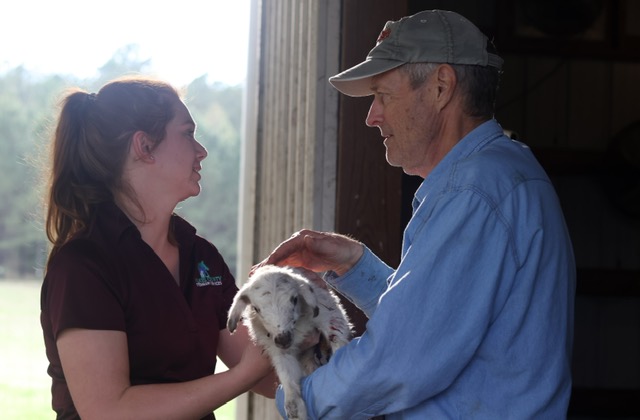
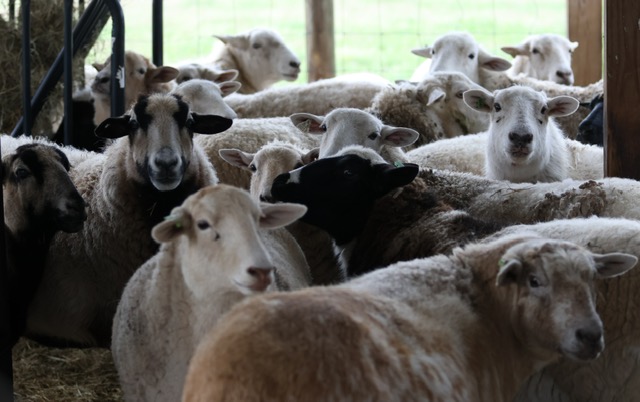
As part of our effort to help you keep your cattle healthy, we offer the following routine preventive care for cattle:
Routine preventive care
- Vaccinations protect cattle from various diseases. Vaccines stimulate the animal's immune system to produce antibodies against specific pathogens, reducing the risk of infection and disease.
- Deworming involves anthelmintic drugs to eliminate internal parasites such as worms. Regular deworming helps prevent parasitic infestations, which can cause weight loss, decreased productivity, and other health issues in cattle.
- Routine Hoof care and trimming / inspection maintains the health of cattle's feet. This helps prevent conditions such as foot rot and hoof abscesses, which can cause lameness and discomfort.
- Nutritional supplementation provides additional nutrients, such as vitamins and minerals, to cattle to ensure they receive a balanced diet. This is particularly important in areas where the natural forage may be deficient in certain nutrients.
- Parasite control, in addition to deworming,may be taken to control external parasites such as lice, mites and ticks. This can include the use of topical treatments or insecticidal dips.
- Health checks & palpation and regular monitoring of cattle's overall health, including body condition scoring, checking for signs of illness or injury, and assessing reproductive health in breeding animals. Early detection of health issues allows for prompt intervention and treatment.
- Herd health practices prevent the introduction and spread of diseases within the herd. This can include measures such as quarantine protocols for new animals, disinfection of equipment and facilities, and limiting contact with other cattle populations.
These terms encompass key aspects of preventive care for cattle, helping to maintain their health and well-being and minimize the risk of disease and productivity losses.
Contact Wilkes County Veterinary Services to Schedule an Appointment today!
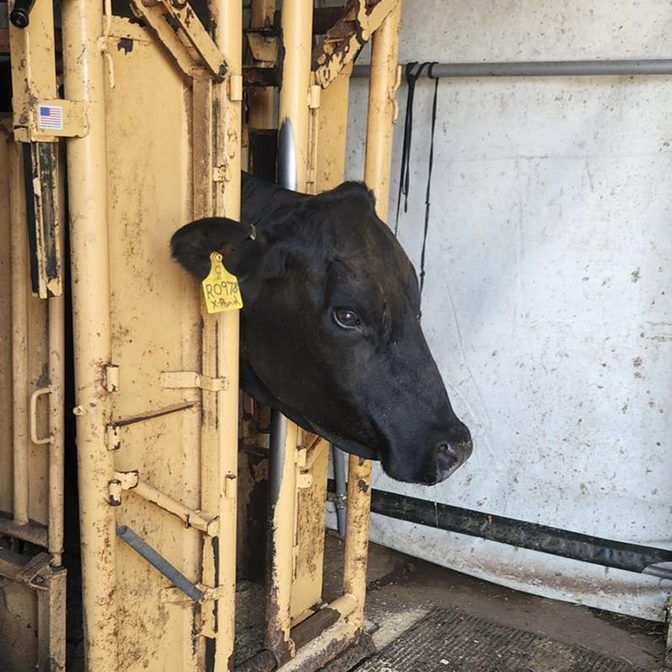
Farm Calls
We understand that it is not always possible to bring your animal to a clinic. That is why we are proud to be a mobile veterinarian and offer farm calls to see animals in your own home.
Seeing animals in their home allows us to treat the animals in a comfortable environment. Please let us know of any specific requests or conditions that will require special attention. We promise to communicate with you throughout the process to make sure it goes smoothly for you and your animal.
